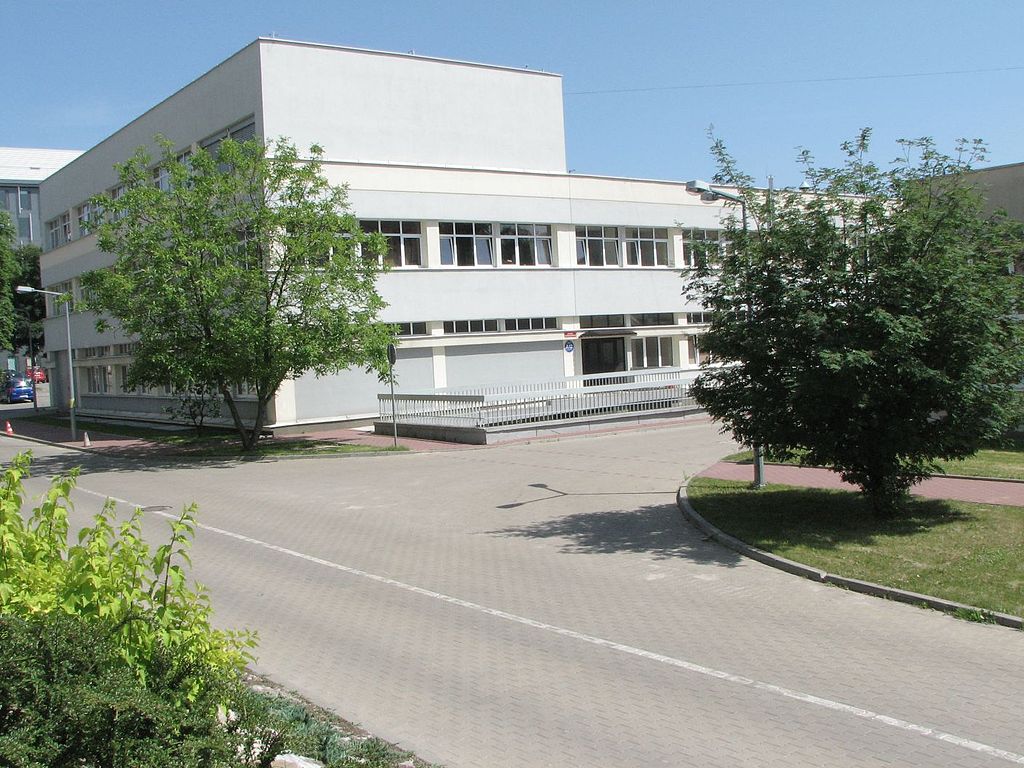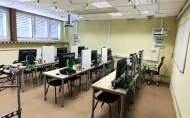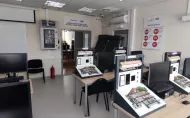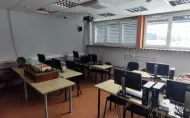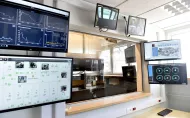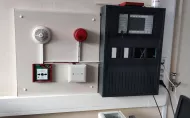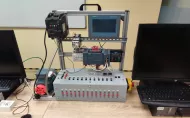The mission of the Department of Electrical Apparatus and Building Management Systems in the years 2011 ÷ 2030+ is to create wide opportunities for the development of modern scientific research, technologies and implementations in the field of electrical apparatus and devices (including electrotraction) and intelligent building management systems, for educating and educating highly qualified scientific staff and engineering that can meet the challenges of modern economy by solving technical and technological problems, implementing scientific research results into economic practice and participating in national and global scientific and technical exchange.
The Department is a community of academic teachers, doctoral students, students and other employees as well as graduates, uniting in caring for its present and future. We recognize as overriding known academic principles: respect for dignity, individual beliefs, civil rights and aspirations of every human being, respect for academic duties and freedoms, pursuit of scientific truth, respect for knowledge and skills, openness to new ideas, reliability in sharing and disseminating knowledge, and also zero tolerance for plagiarism or other ethical violations. This applies equally to all members of the community.
Respect for the goal and the common good builds the good name of the Chair, perpetuates academic customs and cultural patterns. Care for the development of subjectivity and self-governance of students, in particular the student scientific movement, allows students to become competent specialists and enlightened and responsible citizens. Providing students not only with the necessary knowledge and skills, but also supporting their passion for research, shaping creative attitudes, responsibility and diligent performance of their duties, serves the economy and the entire society well.
The most important elements of the implementation of our mission include:
Maintaining a close link between the educational process and scientific research, development of technology and innovation, in cooperation with the economy and society.
Participation in the creation of the European research and education space in cooperation with substantively related domestic and foreign research and economic institutions.
Mobilization of research ideas and national and European funds for the implementation of the Chair's mission and goals.
Ensuring the recognition of the Chair thanks to international and national successes in the practiced fields of science and technology and the quality of graduates of all levels of education.
Striving for a prominent place and scientific integration in the group of related units in the country and abroad.
Broadly understood public service, understood as strengthening the Department as a center of education and technical advice in the field of scientific and educational competences, strongly supporting economic and technical circles in creating their own innovation strategies, technology transfer and staff development.
Broad-profile education and training of engineering staff capable of taking on the challenges of the 21st century, achieving professional successes thanks to the acquired technical knowledge, social attitude and the willingness and ability to learn throughout life.
Creating opportunities for comprehensive and in-depth knowledge of non-technical aspects of engineering, from economics - through safety - to ecology.
Educating students in the spirit of tolerance, respect for human rights, patriotism, sensitivity to the fate of society, and respect for the state.
* * * * *
Ensuring the highest level of didactic, scientific and educational work is the main social role of the Department and an obligation towards future generations, and the education obtained in the Department should help graduates understand the relationship between science and technology and social and civilizational development, in co-creating a knowledge society in Poland.
1945 - establishment of the Laboratory of Electrical Apparatus at the Department of Electrical Power Engineering
1949 - transformation of the Studio into the Department of Electrical Apparatus
1956 - commissioning of the first low-voltage generator short circuit in the Plant in Poland
1957 - establishment of the Department of Electrical Apparatus
1969 - the Department obtains a new premises in the Electric Pavilion B
1970 - incorporation of the Department after the reorganization of the Lodz University of Technology into the Institute of Transformers, Electrical Machines and Apparatuses as the Teaching Team of Electrical Apparatus
1977 - launching a computer laboratory in the Group
1982 - transformation of the Group into the Department of Electrical Apparatus
1985 - establishment of the Institute of Electrical Apparatus
1986 - the Institute obtains premises in a new building and comprehensive reconstruction of the technical base
1986 - establishment of the organizational structure of the Institute
2007 - re-establishment of the Department of Electrical Apparatus
Profesor Stanisław Dzierzbicki - Director in the years 1945-1980, founder of the Łódź school of electrical apparatus, co-founder of the Łódź University of Technology.
Prof. dr hab. inż. Bolesław Bolanowski – Director in the years 1982-1986, led the construction of the short-circuit laboratory for alternating current (short-circuiting) and direct current, the laboratory for contactor endurance and many specialist test stands.
Dr hab. inż. Marek Bartosik, Prof. PŁ Head of the Department of Electrical Apparatus in the years 1986 - 2011.
Prof. dr hab. inż. Piotr Borkowski – Head of the Department of Electrical Apparatus since 2011.
Pracownie KAE
